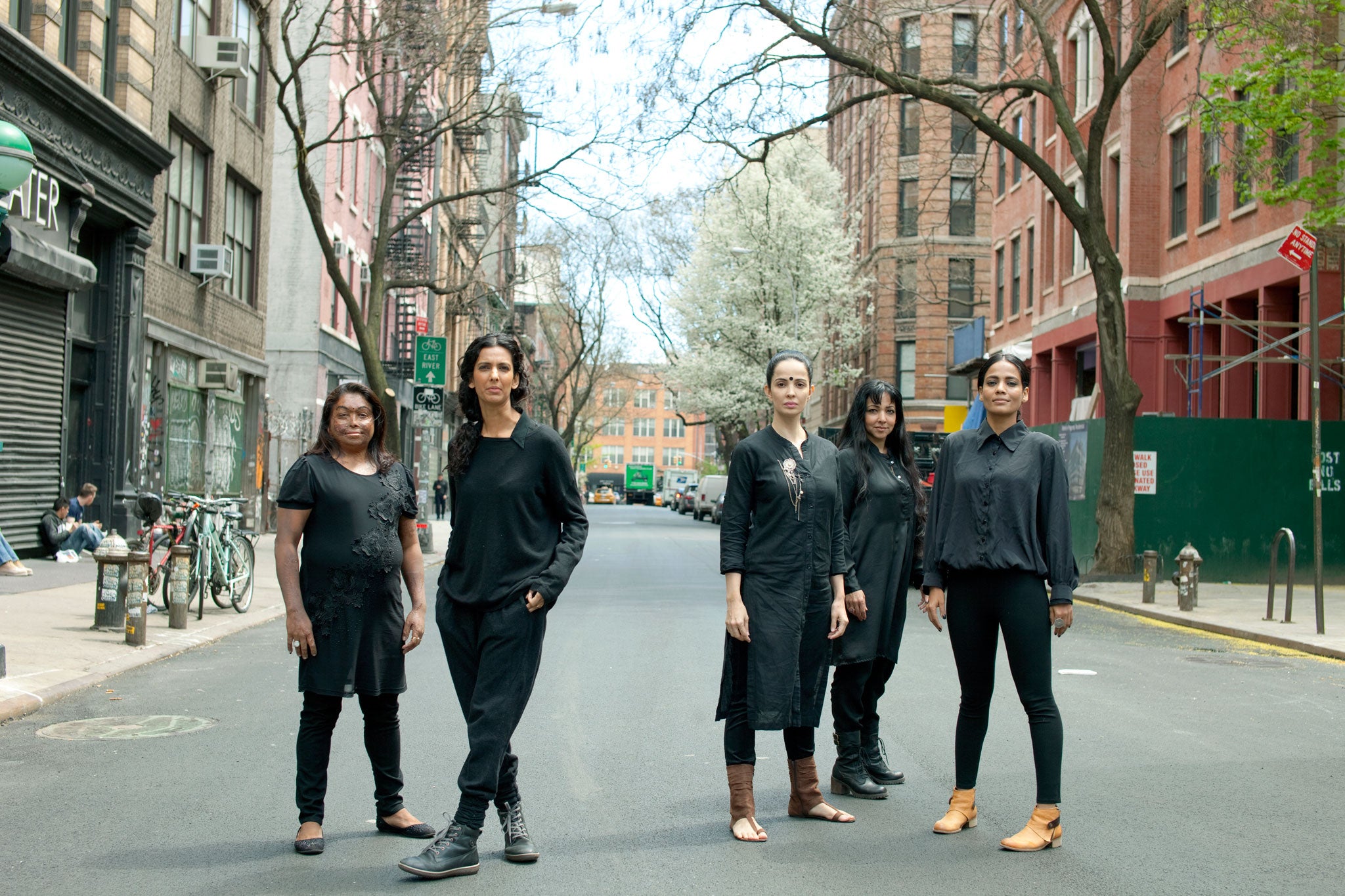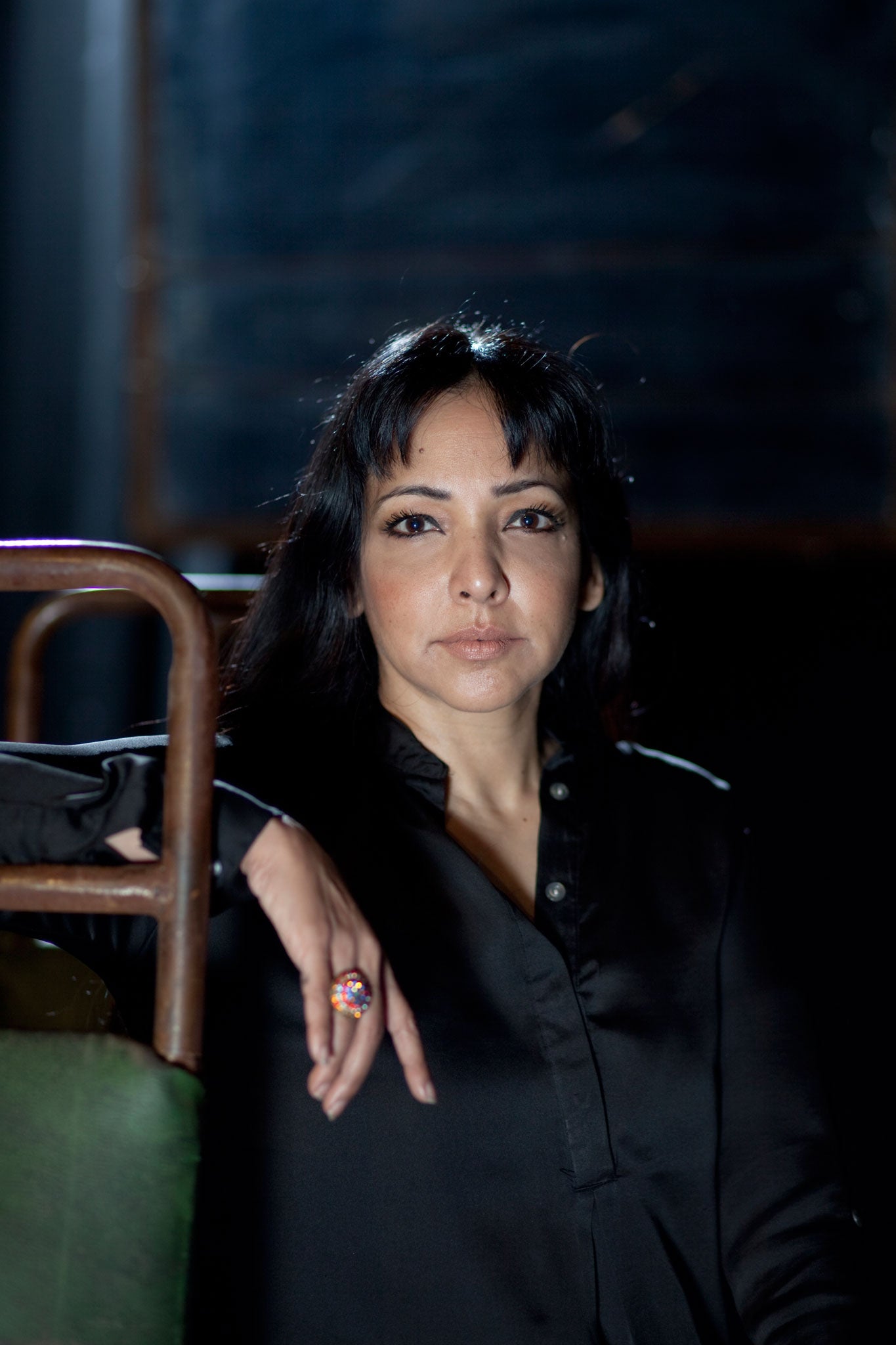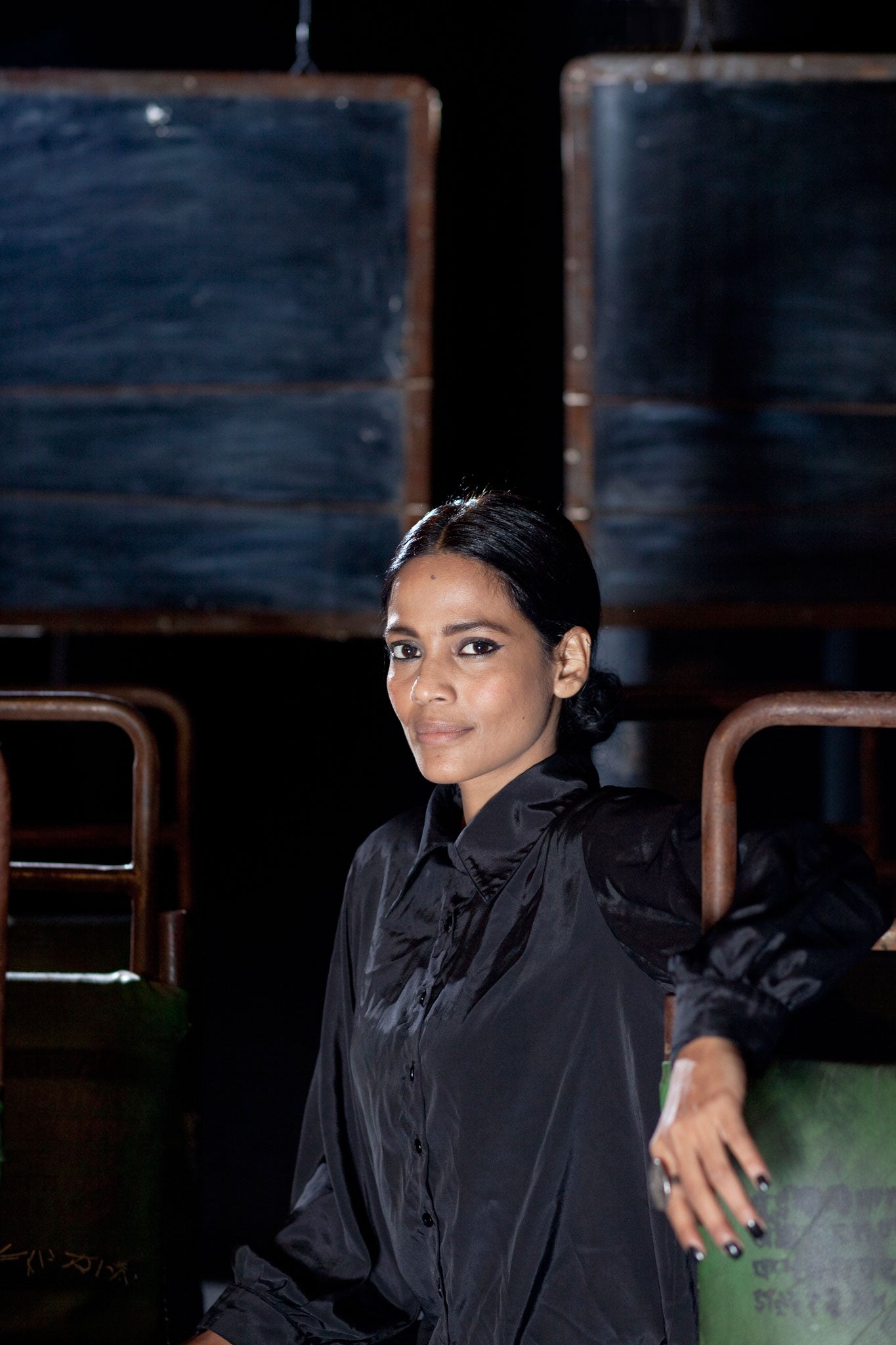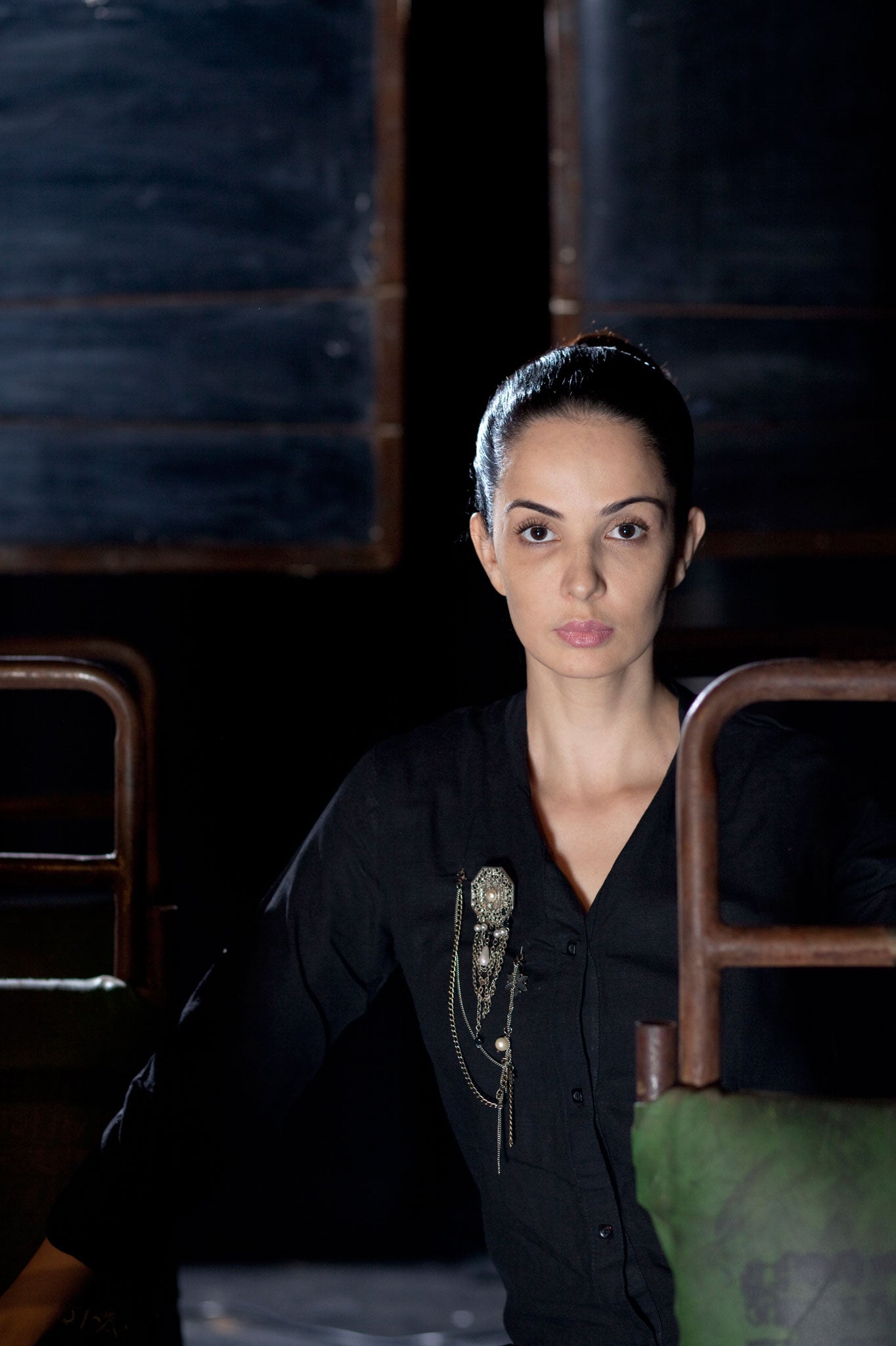Delhi bus rape: Nirbhaya play marries real-life testimonies with a dramatised recreation
The 2012 bus rape and murder of Jyoti Singh Pandey in Delhi shook the world. Out of the trauma has arisen an extraordinary play in which five women who have survived sexual abuse and violence speak out about what they have endured – and why they will not be shamed into secrecy

Prriyanka Bose was on holiday in Kerala when the news broke that a young woman had been gang raped on a bus in Delhi. It was 16 December 2012 and, as the first details of the horrific attack began to emerge, Bose, an award-winning film actress who'd grown up in Delhi, went into the bathroom and stared at herself in the mirror.
She began to imagine that she was the young student – later named as Jyoti Singh Pandey – and it was she who was being brutally tortured. Bose broke down, started weeping, and emerged from the bathroom to tell her husband that she, too, had been a victim of a sex crime many years earlier. It was the first time she had revealed to anyone what she had endured as a young girl, the first time she had broken her silence.
It is 28 months later and, on a warm evening in New York's Greenwich Village, Bose is on stage at the Lynn Redgrave Theater. She is wearing a blood-red dress and is sharing her story of being abused as a young girl, about the stale sweat of the 14-year-old who raped her when she was eight, the feeling of being lost in the darkness when others abused her in later years.
Listening to her, also on stage, are four other women, seated in chairs that resemble the interior of a bus. They, too, have stories. The five women are part of a cast of seven who appear in Nirbhaya, a play written and directed by the South African playwright Yaël Farber that has been touring for two years and arrives in Britain this month. Inspired by the Delhi bus rape, the play marries individual real-life testimonies with a dramatised recreation of what happened to Pandey, the 23-year-old student whom the media dubbed "Nirbhaya", or fearless.
The women who tell their stories in the play are also fearless; it takes courage to break the silence in a culture where the fear of shame is so overpowering. Over the course of three days talking to them – the first time they had agreed to speak about the true stories that inspired the play – it becomes clear that the death of Pandey has been the catalyst for them to tell their own stories. "I was plunged immediately into her experience," recalls Bose: "I remember looking at my four-year-old daughter and thinking, 'I don't know how to protect her.'"
Pamela Sinha is a Canadian actress and playwright of Indian heritage. She was raped in Toronto 20 years ago by a stranger – her story a reminder that the play is about women, not India. "I connected with Jyoti because of the randomness of her story," she says. "It was her right to believe she'd be safe on that bus. In my case, I got home and locked my apartment and went to bed at 10.30pm. It was my right to believe I'd be safe. It was the banality in her story that hit me."
In India, 93 women are raped every day; the number of rapes rose by 35 per cent to 33,707 in 2013, with Delhi reporting 1,441 rapes in that year. "The thing I most felt about what happened to Jyoti was a deep sense of complicity," admits Poorna Jagannathan, a prominent actress who has worked in film and television. "I had something to do with what happened because the only reason violence survives is because of silence."
It was Jagannathan, a survivor of childhood sexual abuse, who first approached Farber with the idea of a play. Farber had directed acclaimed productions of The Crucible and Miss Julie, but was also experienced in scripting testimonial theatre rooted in true-life stories. The two women were friends on Facebook and Farber had posted comments following the Delhi attack that led Jagannathan to contact her. "There is a storm brewing," Jagannathan told her. "People are talking about sexual abuse for the first time." The public protests that followed Pandey's death had created space for a global conversation.

Farber flew to India in early 2013 to research the feasibility of a project reliant on women willing to break years of silence. She interviewed potential cast members via Skype from her home in Montreal before spending five weeks writing and rehearsing the play in the summer of 2013. It opened officially in Edinburgh in that autumn, before which it was performed for the first time in Delhi. "That was the scariest thing I have ever done," says Jagannathan. "I just wanted to turn the clock back and not do it."
"It was crazy," adds Rukhsar Kabir, a successful film star in India who was also on stage in Delhi that night. "My heart was pounding like nobody's business – this was not a play; it was my life on a platter." Kabir's story involves marital violence and rape, of being dragged through the house by her hair by a husband to whom she had been married off at 17. "I had no right to weep or scream," she says during the show. "It is marriage so I cannot call it rape." This is, in fact, the case because, according to Indian law, "sexual intercourse by a man with his own wife, the wife not being under 15 years old, is not rape."
Kabir also had a father who violently beat her, yet her first concern on agreeing to do the play was that it should not appear as if she were insulting him. "I did not think it was strange what he did," she tells me. "I thought that if you did something wrong, your parents are supposed to hit you." Her father died nearly two years ago. "He was a beautiful and handsome man and I miss him. Actually I miss his beatings also."
I ask if she said what I thought she did. She nods: "If he was to hit me now, it would at least mean that he was still alive," she explains.

Kabir attempted suicide at 21 and has been on antidepressants for six years. The other women in the cast have similar stories of medication and therapy. The experience of recalling the most traumatising episodes in their lives has an inevitable impact. "I have to trigger myself to feel what I felt then," says Bose, "and to relive what happened – and that is not easy." Sinha adds: "I am standing there and saying the hardest thing I have ever had to say." Counselling has been provided to help the women cope with the challenge of what Farber referred to as "working from the wound".
Japjit Kaur, who plays Jyoti Pandey in the play, is the only woman not telling her own story, but she, too, has been severely affected. Within weeks of starting rehearsals, she began to get intense stomach pains and pounding headaches. "I felt like I was an open vessel," she says, "and all these stories were flowing through me – my body did not feel like mine."
Kaur eventually went on a 10-day silent retreat and now meditates before each performance so she can protect herself from being damaged by the role.
Nirbhaya is not an easy play to witness – it is raw and harrowing and there are no easy, happy endings. "I believe that those who witness it will be changed by it," Sinha tells me. On the evening I went, the New York audience was deathly silent, a collective holding of breath punctuated by k sniffs, sobs and tears. The woman sitting next to me had tears streaking her face as she heard the story of Sneha Jawale – the only woman in the ensemble who cannot hide her story.
On Christmas Eve 2000, Jawale's husband, who had started beating her within days of their marriage, poured kerosene on her in front of her young son and set her on fire. He later left her and took their son, whom she has not seen for 12 years. Jawale's face is now heavily scarred. She used to work as a teacher but after the attack there were complaints from parents that her face would frighten the children. She was abandoned by her own parents and, after consulting 49 astrologers on why she was still alive, she now works as a tarot reader.

It is a tragic story and, in the play, she describes how she still roams the streets hoping that she may one day find her lost boy in the crowd. It is unbearably moving. "When I look into the audience, I can see people crying and I feel bad that they are so emotional," she says. "I wonder if I am doing the right thing." Jawale hopes that through the show she may one day be reunited with her son.
The men who raped and killed Jyoti Pandey were found, charged and convicted. In the aftermath of her murder, the Indian government vowed a policy of zero tolerance for violence against women and promised to strengthen the justice system in cases involving such crimes. The man who poured the kerosene on Jawale, however, is still at large, as are all the other men who raped and abused the women in the play.
The lack of justice is part of the reason why appearing in Nirbhaya does not offer any sense of closure to the women. "There is no catharsis" says Sinha. "After doing this, I am not going to go home and feel unburdened." The reasons for doing the play lie in the hope that while it may not be cathartic for the actresses, it may inspire change in the audience. "If I had seen this play when I was 16, it would have changed me," says Jagannathan. "I would not have felt so alone."
"[The psychiatrist and Holocaust survivor] Viktor Frankl said that despair is suffering without meaning" says Farber, who suggests that taking part in the play gives "a sense of purpose in going to that darkness". The play has been touring for two years now. "The dream is that Nirbhaya becomes an irrelevant show," Sinha says. "I would love for it to become obsolete."
Nirbhaya ends with each woman standing up, saying her name and slowly raising a fist in the air. The women – Poorna, Pamela, Rukhsar, Sneha and Priyanka – who have spent the past two hours appearing vulnerable and broken end the play looking liberated by the breaking of their silence. They do not look like victims: they are heroic, defiant. They are fearless.
'Nirbhaya' is at Alchemy, Southbank Centre, London SE1 (southbankcentre.co.uk), from 21-24 May, then tours to Doncaster, Wolverhampton and Oldham
Join our commenting forum
Join thought-provoking conversations, follow other Independent readers and see their replies
Comments